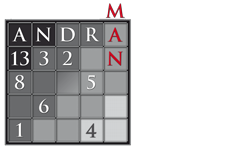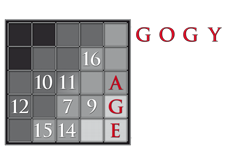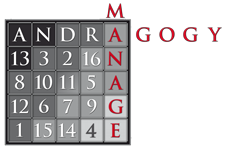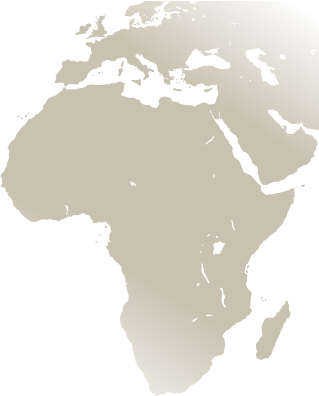



Professional experience in Western Africa since 2003: Burkina Faso, Mauritania, Niger and Senegal
A. Burkina Faso: Technical assistance (advice & support) to the office of the EDF NAO
1. Dates: since April 2015
2. Location: Ouagadougou
3. Beneficiary organisation and parties involved: NAO staff (including the support unit of the Support to the implementation of Burkina Faso-European union co-operation project) at ministry of Economy and Finance, EU delegation, technical ministries and project/programme implementation units in sectors concerned.
4. Position: Main expert and team leader, in partnership with Agriconsulting Europe.
5. Responsibilities: In charge of executing technical assistance contract (25 months’ presence on both “dotted” and phasing-out mode) and therefore team leader of all short term experts mobilized regularly for some 12 to 13 months during the contract’s execution (training, financial and contractual procedures, monitoring & evaluation, communication and visibility.
6. Major activities and achievements:
Support to the NAO staff through coaching as well as to all departments scattered within the ministry while sharing the NAO’s attributions, in terms of administrative, preparatory and accessory tasks as to planning and following up of EDF financed projects. This includes supporting co-ordination of several structures of the Burkinabese administration concerned by the “NAO’s system” which also involves capacity building of those in charge of executing the Support to the implementation of the Burkina Faso – UE co-operation programme aiming at:
- improving quality of documents at all stages of EDF project cycle management;
- reducing red tape or administrative processing of EDF dossiers;
- the full integration of EDF financing management within that one of all external resources;
- improving the visibility of UE supported co-operation activities.
This while providing a methodological and conceptual support as to:
- Programming, identifying and formulating projects;
- The strict applying of EDF financial procedures;
- Managing call for tenders and call for proposals;
- Executing training programs.
Besides, a particular stress is set on communication between actors or partners of the NAO system hence on improving the management information system through all collaboration and exchange structures concerning matters of EDF project ownership, project management and implementation.
7. Skills and experience acquired:
Yet again another more in-depth and on the long run implication in reinforcing the EDF NAO staff. Although this time according to an execution sequence more to-date lately: the combination of the phasing out (less involvement every year) and the “dotted” (not a continuous presence of TA on location) modes. Besides this assignment’s challenge consisted in resuming on short notice a mission initialized in August 2014 by a first expert who chose to resign in February 2015 both for health reasons and because of the disruption following the major political unrest that occurred in October 2014 (violently repressed demonstrations, arson of the parliament and eviction of the president and head of State in place since 1987).
Although basically focused on the NAO staff, the mission makes sure that collaboration with all parties concerned is secured, including and mostly with the European Union delegation and its chief of co-operation. Furthermore, this turned out to be an opportunity to return to Burkina Faso following up on an initial support mission executed between July 2010 and March 2011. Since November 2014 the country is at a particular moment of its history, being at the midst of a political transition and awaiting the organisation of transparent elections in October 2015. A path which unfolding was severely disrupted in September 2015 by a coup lead by the former presidential guard. A violent attempt that involved major disturbances again (numerous casualties and wounded, exactions, intimidation of leading civil society players), the seizing of hostages (the acting president and three acting ministers including the premier) and extreme tensions. An attempt eventually put to a halt early October 2015. Eventually, the situation resumed to normality which allowed the organization of transparent elections at the end of November 2015. Lastly, Burkina Faso counts amongst the pioneers as to the integration of the NAO staff to its public administration.
B. Republic of Niger: technical assistance (advice & support) to ministries of roads and transport infrastructures in assessing five specialized institutions.
1. Dates: August - September 2014 & January - February 2015
2. Location: Niamey
3. Organisation and parties involved: 10th EDF institutional support to the roads sector programme, NAO office, EU delegation and technical departments concerned.
4. Position: short-term expert, in partnership with Louis Berger.
5. Responsibilities: in charge of assessing the evolution of five institutions falling under the ministries of roads and transport infrastructures.
6. Major activities and achievements:
Performance and organisational analysis of the following structures:
- Roads maintenance autonomous fund (CAFER): in charge of collecting financial resources for the maintenance of the national roads and tracks network since 1999; the assignment was aimed at evaluating this entity’s efficiency and independence.
- National building and public works laboratory (LNBTP): established as a semi-autonomous institution since 2002 and in charge of performing all geo-technical studies amongst other related requirements.
- National public works equipment rental company (SLMTP): established as a semi-private company since 2002; it's mission consist in renting the equipment that public works companies need.
- Centre for capacity building in the field of public works (CPTP): a public institution in charge of vocational training and education that was not involved in the institutional reform that took place in the late 1990's.
- Training centre for road transport techniques: a public institution falling under the ministry of transport and in charge of training professionals of the transport industry; this entity too was not involved in the institutional reform that took place in the late 1990's.
The evaluation carried out looked into the performance of these institutions for the past ±15 years with respect to the needs of the private sector in the area of road construction and maintenance. Recommendations for needs to be fulfilled in terms of capacity building and efficiency were made and looked into through a participatory methodology that included a workshop (December) with all parties concerned.
7. Skills and experience acquired:
Another experience in the highly strategic area of roads transport management and maintenance more specifically. Yet again, the issue of second generation maintenance funds in Africa was on the agenda next to the infrastructures sector's traditional preoccupations including vocational training and support to the companies of a private sector created from scratch some 10 to 15 years ago. This in the context of a land-locked country (now an oil producer since 2011) very much a victim of the geopolitical situation prevailing in the Sahel for long decades.
C. Islamic Republic of Mauritania: technical assistance in identifying a support programme to the Mauritanian security forces in the framework of implementing axis 2 of Europe’s Security and development strategy for the Sahel
1. Dates: October-November 2012
2. Location: Nouakchott, Mauritania.
3. Organisation and parties involved: NAO staff (Cellule d’appui à l’ordonnateur national du FED - CAON-FED); EU delegation and Mauritanian defence and security forces.
4. Position: short-term expert, in partnership with Linpico.
5. Responsibilities: in charge of assisting the NAO office (CAON) and the ad hoc working group in drafting the PIF – Project identification fiche and its schedules related to this new type of programme for the EDF in Mauritania. It involved working on almost a daily basis with military and police staff (army, gendarmerie, national guard, national security, police and civilian protection services) while constantly liaising with EUD staff and the CAON.
6. Major achievements and activities:
A comprehensive PIF was delivered before leaving the country during a meeting with the EU Delegate and staff concerned. As all its components needed be addressed, a thorough baseline analysis was carried out though meetings and working sessions with all parties involved. Which includes member States (France, UK, Spain, Germany) and others such as NATO and the USA. This included analysing the institutional context and the country’s national strategy on the matter, summarising these while following the logical framework approach in order to assess problems identified, stakeholders and possible areas to focus on. Half-day workshops with all involved were held three times during this 4 weeks assignment in order to agree on risks and assumptions to be taken into account so that success or failure factors pertaining to this kind of intervention would be identified as well. The identification process includes also looking into implementation modalities and drafting of a rough budget.
7. Acquired skills and experience
A major challenge as all had to be wrapped up in less than a month when parties involved had some disagreements on how to tackle the matter and related priorities. This involved putting together people from very different horizons (International aid and high-ranked officers from different security forces) not used to talk the same language. A most interesting experience in a country often subject to political instability let alone most of its population living in extreme poverty in a country squeezed between the Sahara and the Atlantic Ocean. This while the economical context is fragile and natural resources scarce (fishing, cattle, mines…) with on top of it all a very sensitive geopolitical disturbance both within national borders until recently and in neighbouring countries (Mali) presently.
D. Burkina Faso : Technical assistance to the NAO department within the International co-operation directorate general
1. Dates: July - December 2010 & February – March 2011
2. Location: Wagadougou, Burkina Faso
3. Organisation and parties involved: EUD, PIU, technical ministries and in first line, the Ministry of Economy and Finance, directorate general for Co-operation (DG COOP), in charge of co-ordinating external aid allocated to Burkina Faso as a whole (multilateral, bilateral, NGO…) as well as to measure its effectiveness (Paris Declaration & high level forums). Community (EC) aid in Burkina Faso represents over 962 million euros since 2001 (9th & 10th EDF) and amounted to 1/5th of total PAD in 2008. Contact points: Mr Léné Sebgo, director general of Co-operation; Mr Dieudonné Goungounga, director for multilateral co-operation, Mrs Isabelle Sanou, head of EU service UE within the DG COOP an on the other hand, within the EUD, Mr Theo Hoorntje, Mr Arnaud Borchard an Mr Stéphane Brossard respectively head of operations, head of the Economy, social sectors section and in charge of the support to the NAO project (PAON).
4. Position: monitoring & evaluation expert (in partnership with Cowi Belgium) more particularly in support of the NAO’s M&E monitoring & evaluation unit within the department in charge of following up EDF programmes (SPPC-UE – service de promotion des programmes de coopération avec l’UE). In charge of reinforcing capacities regarding PCM (which includes tender & contracting procedures) as well as issues related to co-ordination, the management of information and of human resources.
5. Responsibilities: reinforce NAO monitoring & evaluation system
In charge of elaborating and executing a training programme on EDF project cycle management (PCM) together with a methodological support delivered through the « coaching » of the whole staff (13 civil servants) of the SPPC-UE. The programme was executed as complementary components during more than 3 months next to three specific workshops which included 2 on the « ideal » NAO support project.
PCM and M&E : training and coaching aiming at mastering all procedures and necessary tasks to be fulfilled when designing or implementing correctly EDF projects as a NAO. This of course includes drafting project identification fiches, Action fiches or annual action plans, tender dossiers mastering & contracting procedures, contract management, payment procedures, joint annual reports (NAO & EC) following the precepts of the EC on those matters (as in the PRAG) ;
Internal & external coordination – including with other technical and financial partners or donors : support to the coordination with other DG Coop departments as well as within the ministry of Finance (Planning, public tenders directorate…) project support units and above all the EUD (operational sections & « finances - contracts » section) notably with respect to identification or formulation assignments;
Results – based external monitoring, monitoring & evaluation and development of management tools (dash boards and alert systems) : combine theory and practice through real life cases and solving everyday problems with the officials concerned. Support to information access and archiving ;
Tender & contracting modalities Modalities : as from October 2011, in close collaboration with the expert in charge of supporting the « contrôle-DAO » unit, execution of training modules (Cotonou agreement, EDF and NIP implementation, Financial Ruling, variety of contracts…
6. Major activities and achievements:
6.1. Assessment update on EDF management in Burkina Faso: as to the appropriation of the capacity of project manager, communication circuits, HRM (turnover, motivation and incentives....) ;
6.2. Elaboration and implementation of a training programme: 2-3 hours training sessions on site over four days each week in order to allow civil servants to allocate enough time to everyday commitments related to their job.
6.3. Specific one week workshop (October 2010) in Tengodogo: in collaboration with the expert in charge of the tenders – control component, Mr Dominique Lecompte (already a colleague in the DRC between 2004 and 2007), organisation of a workshop on the NAO’s responsibilities as a whole as project manager in a small town in eastern Burkina which involved the whole staff. Emphasis was put on financing, tendering, contracting & implementation procedures.
6.4. Two workshops on the « ideal » NAO set up (December 2010 & march 2011):
A one-day workshop was held at the end of the first phase of the mission in order to examine how the NAO system could be improved through the best possible support project at present and under the 10th EDF. The whole SPPC-UE staff was involved as well as the contact person at the EU delegation. During the 2nd and final phase of the mission (February – march 2011), I have planned and then conducted a workshop (two days) focusing on designing the « ideal » NAO support project in Ouagadougou; next to NAO staff were several EUD officials and agents (including the head of cooperation) as well as officials from other departments of the ministry of Finance (Public tenders, Planning, Budget, Permanent secretariat…). The heads (DG) of all these departments were met at first in order to reinforce the participatory process. Outcome of the workshop was a consensus on the approach to follow especially in terms of specific technical supports. This exercise took into account the recent administrative restructuring implemented within the ministry in 2010 and which consequences were that the approbation circuit (and hence the system) was extended to other departments on top of the International cooperation DG.
6.4. Support and advice to the West Africa network meeting (8 – 20 October 2010):
The Burkinabe NAO department hosted the members of the « Réseau ouest-africain des cellules d’appui à l’ON » (which includes 12 francophone and Portuguese countries in the region). responding the head of department’s request, I made a presentation on the specificities of the Burkinabe set up – actually quite similar to that one in place in Senegal. This was the opportunity to balance the advantages of a NAO office completely integrated within the administration with more classical arrangements.
7. Acquired skills and experience :
This experience in Burkina Faso between July 2010 and March 2011 with the NAO services within the very ministry of Finance gave me the opportunity to widen my knowledge on NAO set ups across the EDF environment, in West Africa more particularly, namely through taking part in the above-mentioned regional meeting.
E. Monitoring & evaluation reinforcement of food security projects financed by the Belgian survival fund in Senegal
1. Dates: July 2004.
2. Lieu: Dakar, Senegal.
3. Organisation: Belgian survival fund (+€250 million.) / Belgian ministry for Foreign affairs, external trade and development co-operation, DG « Development » - 6 rue Bréderode, Brussels.
Initiated by the Belgian parliament in 1983, the BSF has 20 implementation partners including the Belgian technical cooperation agency (BTC), NGO from the North and the South as well as UN agencies and programmes (IFAD & FAO, UNICEF, UNCDF);
It finances interventions in region stricken by extreme poverty and/or where famines occur chronically while systematically taking into account problems related to environmental degradation, unequal opportunities between sexes or gender issues as well as
the fight against HIV-Aids. The fund is also supportive to fair trade, mutual responsibility or « empowerment » as well as
« ownership ».
4. Position: Specially qualified expert in the field of M&E and in this capacity head of the « Performance Monitoring and Evaluation System » project.
5. Responsibilities:
Making sure that the BSF’s principles are respected as to project cycle management (« PCM » - 6 phases from identification to programming) according to the logical framework approach - or planning by objectives. Its support focuses on food security, based on an integrated participative approach inclusive of all dimensions of poverty (OECD definitions 2001).
I therefore had to make sure that projects supported would include the social dimension (health, education, basic social infrastructures e.g. water and communications), community (or « societal » : iniquities based on status, protection of vulnerable minorities), political dimension (decentralisation and local development institutions), economy (markets, agriculture and the private sector & micro-enterprises, sustainable management of natural resources) and finally, the security dimension at large (sustainability/viability objectives, prevention of natural crises and social instability etc.
My activities would be divided between implementing or reinforcing PMES within projects supported by the BSF and carrying out field missions in the 20 countries concerned. This while collaborating with implementing partners as to the quality of their M&E systems. As the BSF was to be evaluated in 2005, I would assisted in providing it with tools geared at better assessing its impact and its programmes viability, effectiveness, efficiency and relevancy. This required aiming at more coherence through standardisation of management tools and the harmonisation of objectively verifiable indicators more specifically.
Moreover, I chaired the assessment committee to which all project & programme proposals would be submitted. It was required from each one to follow the causality principle of the logical framework approach: Baseline analysis (context and stakeholders), problem tree, identification of expected results and objectives, the strategy (means, costs and schedule) to execute according to assumptions and the risk analysis, the resources the PMES could rely on and its procedures, the definition of OVI (« SMART » or « QQTTP » principles), verification sources logical frame matrix. Every situation, every project must follow the integrated approach (cf. infra 6.2.).
6. Achievements and projects mainly concerned:
I was involved with over 12 on-going projects, notably while carrying out field visits (Uganda, Niger, Kenya et Senegal) and systematically reviewed or revised their intervention logic and logical framework matrix of programmes monitored (cf. infra), on top of proposals submitted to the evaluation committee (20+) as well as of all those in their inception phase. As for Senegal more specifically:
6.1. Regional programme supporting food security initiatives (€6 million – Senegal / Mali / Burkina Faso):
5-year project started in 2004, implemented by 3 Belgian NGO and several local NGO (e.g. the GADEC). The field mission included providing support to a workshop that focused on reviewing the logical framework matrices and setting up the PM&E system.
7. Skills and experience acquired:
Another experience in a Western African country.
Essentially, a much better mastering the logical framework approach and its related performance monitoring and evaluation systems, results-based management and planning by objectives. An opportunity to acquire much more knowledge of the reality of project management in the field: Better assessment of the local context and of different implementing partners.
I also developed my capacity in terms of training / knowledge transmission in theses areas through conducting workshops and short training programmes.
F. Monitoring & evaluation reinforcement of food security projects financed by the Belgian survival fund in Niger
1. Dates: September 2003
2. Locations: Nyamey, Mayahi, Zinder and Maradi, Niger
3. Organisation: Belgian survival fund (+€250 million.) / see above
4. Position: Specially qualified expert in the field of M&E and in this capacity head of the « Performance Monitoring and Evaluation System » project.
5. Responsibilities: see above.
6. Achievements and projects mainly concerned: See above.
As for Niger more specifically:
6.1. « Damagaraman » project (€2 million – Niger): 5-year project started in 1999 and implemented by the NGO Aquadev in the Zinder district (south-central part of the country). I was on location in September 2003 in order to reinforce the monitoring & evaluation unit.
6.2. Support to local development in the Mayahi and Nguigmi districts (€5 million – Niger): 5-year project including 2 regions and implemented by UNCDF (capital development fund). On location in September 2003, with government officials and a UNCDF M&E officer. I had the logical frame intervention reviewed and reformulated. I conducted a 2 days workshop on PMES and the logical framework approach.
7. Skills and experience acquired:
My very first experience in a Western African country and one of my first ones as a workshop animator and organiser as well as a trainer. Prefiguring what would be my role in Kenya later that year (December 2003) and the following one (June 2004).
My first experience in a country extremely poor and facing very significant development challenges (no railway, harsh climate, regular droughts,very little access to drinkable water in most parts of its territory).

HOME
EDF NATIONAL AUTHORISING OFFICER
MONITORING & EVALUATION
SUSTAINABLE MANAGEMENT
PROCUREMENT & CONTRACT MANAGEMENT
FINANCE &
FOREIGN TRADE
LINKS & CONTACTS
ON-GOING ASSIGNMENTS
D.R. CONGO / ZAIRE
NORTHERN AFRICA
WESTERN AFRICA
CENTRAL AFRICA
EAST & SOUTHERN AFRICA
REST OF THE WORLD
Version Française
© ANDRAMAN 2009-2020
WEB DESIGN : PINXIPICTUS.BE